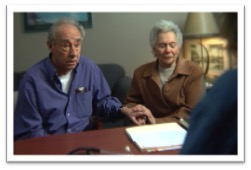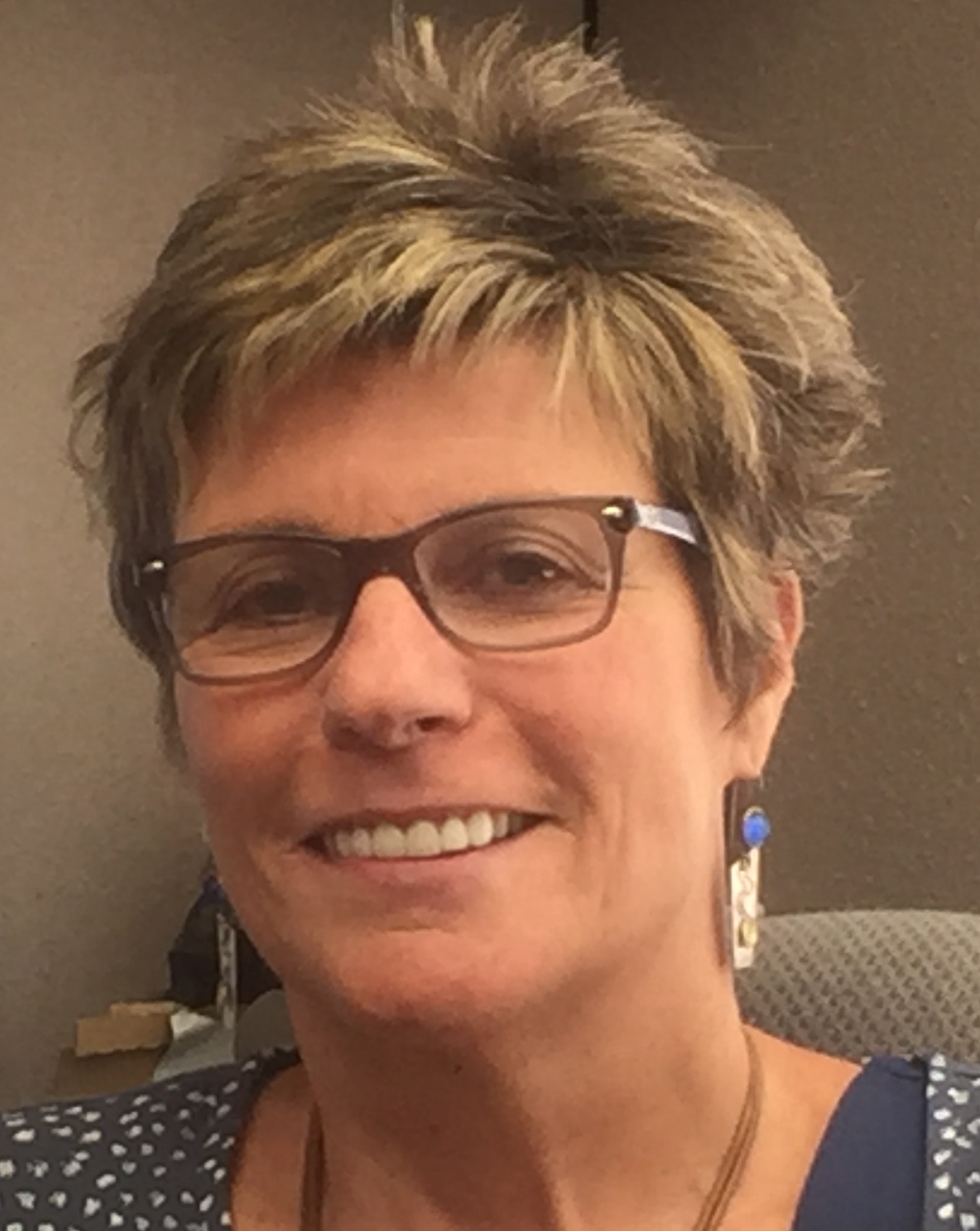
IHC Patient-Centered Communication Series: Sharing Serious News
-
Register
- KZA User - $149
- Other - $149
Presented by:

About the IHC
The Institute for Healthcare Communication (IHC) has been a leader in healthcare communication skills training since 1987. IHC’s accredited programs advance the quality of healthcare, with measurable benefits for patient satisfaction, clinician career satisfaction, patient health outcomes and durable relationships of trust.
These modules are conducted in partnership with KarenZupko & Associates, Inc.


Overview
Some of the most challenging conversations that clinicians must have with patients and families involve sharing serious news. While sharing such news is oftentimes quite distressful for the patient and family, it can also be distressful for the clinician. Many clinicians do not feel competent or comfortable about delivering bad news. While it will never be easy to be the bearer of distressing news, clinicians can gain confidence and competence by mastering specific communication techniques for navigating these emotionally-charged interactions. Strong communication skills bolster the clinician-patient relationship and foster clinician-patient collaboration.
INTRODUCTION
Sharing serious news is a challenging and essential part of healthcare delivery. The way that clinicians share such news has potentially lasting effects for patients and families. Done well, it can preserve and strengthen the clinician-patient relationship, foster collaboration, and promote healing and coping with illness, injury or death. Done poorly, it can cause unnecessary suffering. So, while you cannot change the actual news itself, you have control over the manner in which it is shared.
Abundant scientific evidence and anecdotal experience supports the idea that people retain strong memories of emotionally-charged events. Americans of a certain generation can remember exactly where they were when President Kennedy was assassinated or on Sept. 11, 2001. Similarly, patients and families remember when and where and how they received bad news. Skilled, empathic clinicians can help patients and families focus their energies on the healthcare challenges at hand.
Clinicians who are effectively trained to share serious news which includes attending to the emotional aspects of informing patients are likely to feel a higher level of gratification in their work, and decreased feelings of stress and burnout. This module is based on the premise that the delivery of serious news such as sudden death is best conducted in person by a multidisciplinary team. Using a team-based model provides role clarity for the patient and/or family and taps the strengths of each team member in meeting the varied needs of the patient and/or family. This team would ideally include a physician or clinician, a nursing professional and/or a social worker, or hospital chaplain.
Clinicians at every stage of their careers find value in brief modules and workshops focused on specific communication skills that can enhance their effectiveness and job satisfaction. Like all of IHC CME live and virtual workshops, Sharing Serious News provides an evidence-based and engaging educational experience for learners to learn and practice specific communication skills for immediate practice application.
Content
Why a separate communication module on sharing serious news? We recognize that you or your colleagues may have been sharing bad news with patients for a long time. You may not like doing it, yet you understand it is part of your responsibilities in caring for patients. You may or may not have had formal training and often trust your instincts and experience on how to do it. Some of you have just begun your clinical work and want guidance.
If you have not had formal training, and have relied upon clinical experience, you are not alone. For those of you who have had formal training or have had years of experience, it is our hope that this workshop will reinforce and add to your learning. Although doctors are often the primary deliverer of bad news with patients, other healthcare professionals such as nurses and social workers can contribute to how the discussion is perceived by the recipients of the news (patient and/or family).
Here’s what we know about training on this important topic:
• Medical students and house officers perceive themselves to be inadequately trained in delivery of bad news (Orlander, et al, 2002). Yet many residency and fellowship programs lack formal instruction on the delivery of bad news (Reed, 2015).
• Warnock et al., (2010) reported that other healthcare professional such as nurses are inadequately trained and prepared for responding effectively to patient and family varied needs during and following bad news discussions.
• Education programs that focus on techniques in sharing bad news have been shown to increase clinician knowledge, competence and confidence in applying these communication skills (Porensky 2016; Reed, 2015).
There are estimates that these “serious news” discussions can occur more than 20,000 times during the course of an oncologist’s career. This underscores the importance of this communication competency and use of a model for understanding the process involved and approaching it as a stepwise procedure, applying well-established principles of communication and counseling. Learners will be introduced to a 6-step evidence based communication protocol from the work of Robert Buckman, MD. He used the acronym SPIKES to remember the 6 steps.
As with all IHC communication workshops, a SSN annotated bibliography is accessible on our website. We encourage you to use the bibliography after the module as a resource for further professional development on patient-centered communication.
Expectations
Sharing Serious News is appropriate for clinicians and members of the health care team at all stages of their careers. To obtain the full value of the experience, we encourage further participation in a longer version of this module (3 hours) with several opportunities for practice that can be scheduled upon request virtually or in person.
Learning Objectives
1. Identify the 6 step SPIKES model for sharing serious news
2. Describe at least 2 elements for preparing the Setting for sharing serious news
3. Identify and respond to at least two 2 empathic opportunities
Methodology
Sharing Serious News module is available in this one-hour CME and self-paced virtual format and also available in a 3 hour live virtual or in person format. The latter version is fast-paced and interactive, with a strong focus on opportunities to practice skills and techniques in a safe and structured environment. More than two-thirds of the 3 hour module is interactive, combining individual and small group exercises to analyze video enactments of actual cases and role play to apply newly leaned skills to contextually relevant cases.
Faculty
Faculty members who teach IHC’s SSN modules have completed a comprehensive faculty development program. The faculty program includes individualized coaching conducted by IHC Senior Trainers to prepare faculty to teach and facilitate the workshop, deepen their own communication skills, and to explore strategies to support relationship-building and communication skills at their home institutions.
CME/CE
The Institute for Healthcare Communication is accredited by the Accreditation Council for Continuing Medical Education (ACCME) to sponsor continuing medical education for physicians. IHC takes responsibility for the content, quality, and scientific integrity of this CE/CME activity. Sharing Serious News is designated by the Institute for Healthcare Communication as a continuing medical education activity meeting the criteria for up to three hours in Category 1 of the Physician’s Recognition Award of the American Medical Association.
For further information, please contact:
Institute for Healthcare Communication www.healthcarecomm.org

Kathleen Bonvicini (Moderator)
MPH, EdD
Kathleen Bonvicini serves as the CEO/Executive Director of IHC since 2009. Dr. Bonvicini began her work in clinician-patient communication in 1999 and has developed and delivered many of IHC’s communication workshops and provides train-the-trainer programs to clinicians and healthcare professionals in human and veterinary medicine throughout the United States, Canada, Europe, Japan, Australia, South America and Oman. She has conducted and published her research in the area of empathic connection specific to physician empathy with patients and many other important topics which encourage relationship-centered care. In addition, she has written and presented extensively to an international audience including practitioners, opinion leaders, students, academicians, healthcare professionals and consumers on the importance of communication training in healthcare. She is also a trained Mediator and End-of-Life Doula and volunteers her time with home hospice care. Prior to her 20+ years of work with IHC, Kathleen had an impressive record of professional achievement, including fifteen years of experience in research and psychiatry at the Yale University - Veterans Administration Laboratory of Psychiatric Genetics and has worked as a social worker in the areas of adolescent pregnancy, law enforcement, and women's health, and university teaching in psychology and public health.
Key:
If you are having trouble with certain features or if videos are not loading properly please check what web browser you are using. If you are using Internet Explorer as your web browser you may encounter additional issues as it is no longer supported by Microsoft. We suggest using Microsoft Edge, Chrome, or Safari.

